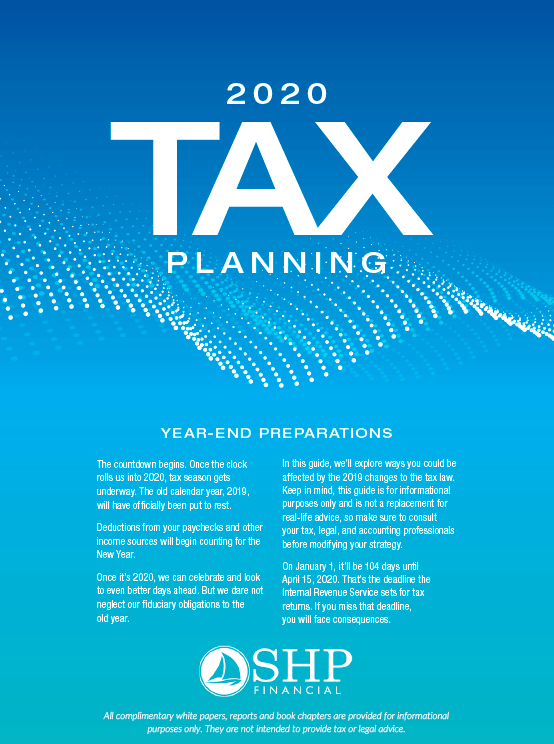
Here’s What You Need to Know About Taxes
For retirees and pre-retirees, tax strategy is an important component of a retirement plan and should be adjusted based on your wants and needs in retirement. If you are in your working years you will most likely be focused on maximizing contributions to your retirement plan and decreasing your taxable income. However, once you retire, any decision that you make regarding Social Security, retirement accounts or even charitable gifts could have an impact on your taxes. With our national deficit, it’s likely that there will be tax increases down the line, this creates a window of opportunity as tax code will change after 2025. That’s why it’s important to take action and note the below tax tips:
1. Plan Ahead: You should never wait until April 15th to start thinking about your tax strategy. In order to optimize your retirement income, you should have taxes on your mind all year round and implement your plan in every season, not just when tax time rolls around.
2. Understand Social Security: Your Social Security income may be taxable; it all depends on your provisional income. If this income is less than $25,000 for an individual, your Social Security is not taxable. This number sounds small because it is counted after deductions and only includes half of your Social Security income. If you’re above the minimum provisional income, you could be taxed on up to 85% of your benefits! This is why it’s important to know your position and build a plan accordingly.
3. Keep Your Taxable Income Low: By keeping this income low, you can save money in the long run. Your withdrawal strategy should take into account using your available cash to tax optimize your total income picture.
4. Consider a Roth Conversion: It’s important to look at your retirement accounts in order to decide what the most tax efficient plan is for you. For some, it may make sense to convert your traditional IRA into a Roth IRA in order to have tax-free growth and tax-free income in retirement.
5. Design a Charitable Giving Strategy: If you often donate money to charities, keep track of your donations. There may be tax benefits from those gifts that could save you money down the road.
There are other strategies to consider when it comes to tax planning which is why it’s best to get a professional’s opinion whether those are right for you. At SHP Financial, we’ll walk through the plan you have in place and adjust it based on your wants and needs. To learn more, read our complimentary whitepaper below or schedule your financial review today!






